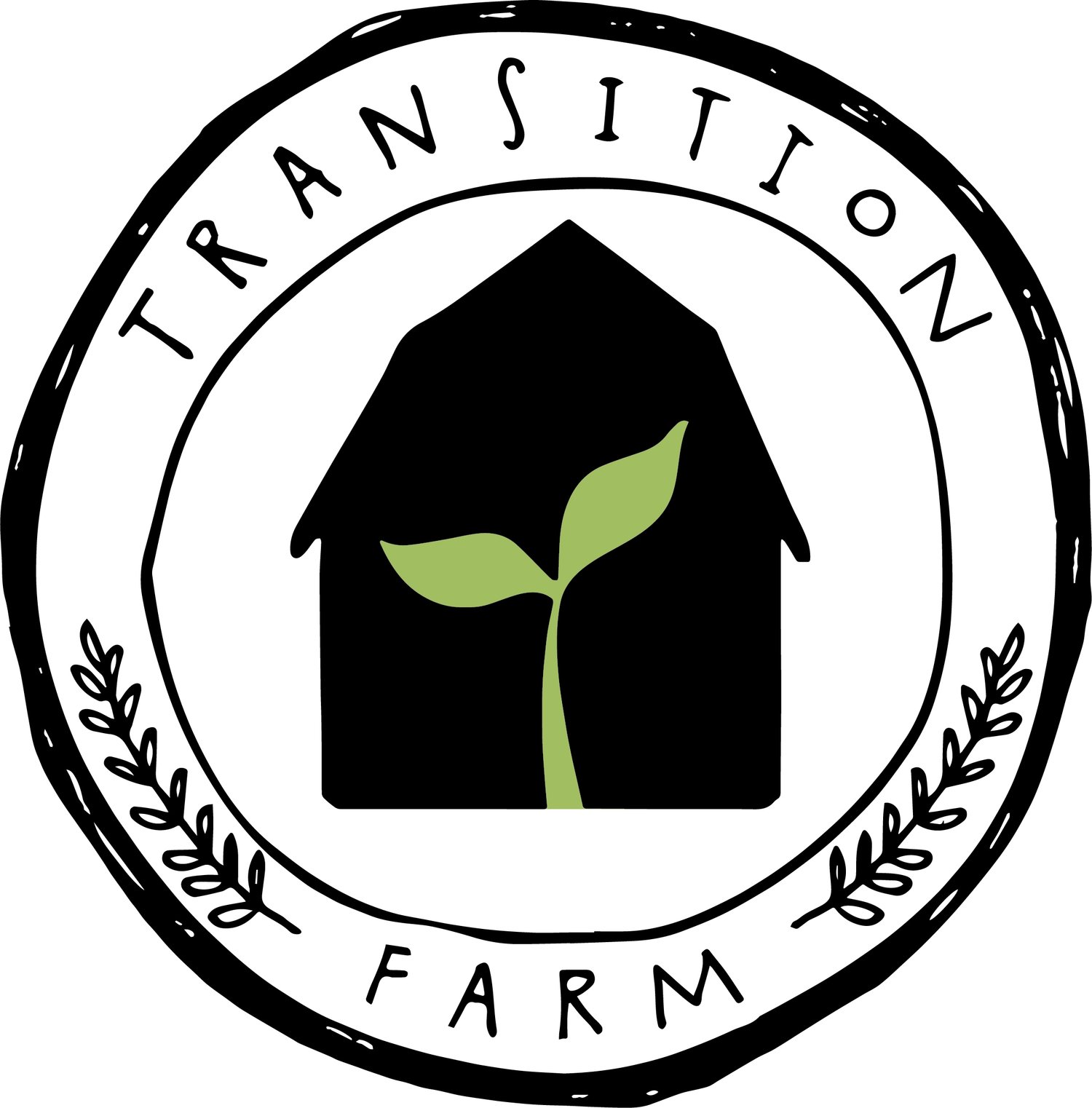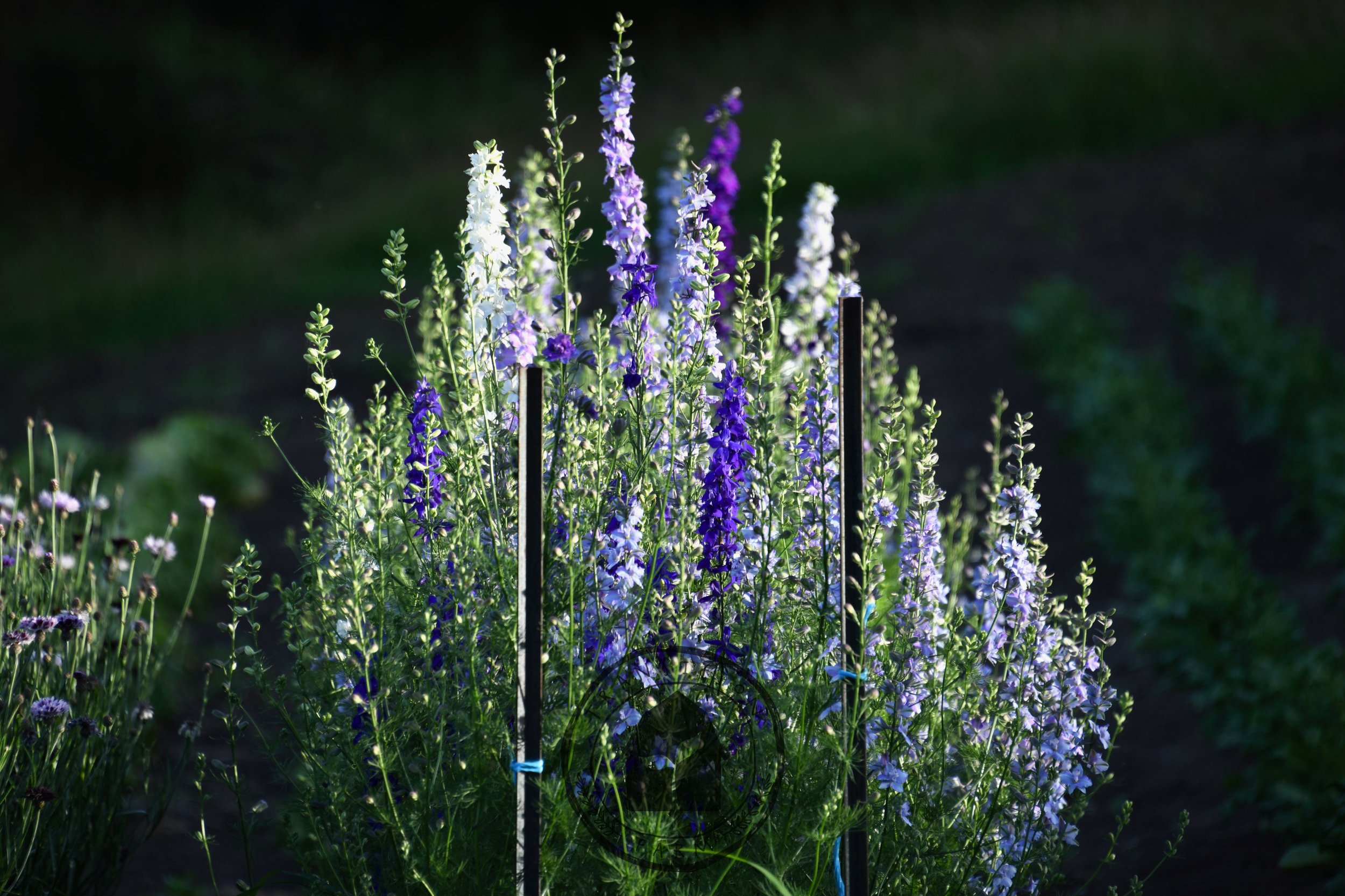Spring!
/This has been a full month...culminating with our first Biodynamic 500 application for this growing season. Regular applications of BD500 encourages strong humus formation, all soil bacteria and soil fungi, increase earthworm activity, absorption and retention of water and development of deep rooting systems - all the things that help make soil healthy and alive and help soil support plant life! While the glass house was filling up with vegetable seedlings, there were fruit trees to be pruned, mandala circles to be weeded, more herbs and flowers to be planted, mulch and compost to be spread. The mandalas on one half of our farm offer a whole ecosystem to the vegetables and fruit growing. There are natives, flowers, herbs, fruit trees and circles growing annual vegetables. Before Spring really hits, the mandala circles are weeded and the perennial herbs and flowers tidied up, the fruit trees pruned and everything mulched and fed with compost. Hopefully the large amounts of compost will help the mandalas handle the heat of summer. You can read more about herbs and perennials in the mandala here.
In addition to Peter and myself, we have had "a crew" for the month. Last Autumn, an Ag Science student found and interviewed us about CSA's as alternative farming. During her time on the farm, we asked her what she wanted to do, upon completing her degree. And she responded, "I want to do what you are doing." To which we said, "Why don't you come and work with us, then?" And she has...Welcome Clancy Hearps!
We have also been joined by two interns, Lisa Mitchell and Chris Warren - both of whom are really keen to learn more about growing vegetables year round. Chris is also keen to learn the ins and outs of running a CSA. In addition to soil blocking, seeding, greenhouse practices, thinning, planting, weeding, under sowing cover crops, herbs as micro nutrient accumulators, basic fruit tree pruning and maintenance and biodynamics, we have been working with Lisa and Chris on a four season vegetable garden bed rotation, based on incorporating chickens into the rotation. We love the addition of new energies to the farm, learning from them and sharing what is working for us...and what has not.
While the scale of our farm is a bit more than a backyard garden, so much of what we do on the farm can readily be applied to the backyard. We welcome interns interested in any and all aspects of what we are doing on our farm - and hope that their time with us will help in some way to getting them growing more food on a local level. You can read more here about our farm internships.
We will be erecting a polytunnel for the first tomato planting in about a week. This should ensure tomatoes for Christmas! We also will be able to put shade cloth over the crop if the summer includes intense heat like last year. The seedlings look fantastic!
With some quality compost this year, we are using soil blocks to grow our seedlings. Soil blocks are made by combining compost, peat and coarse sand or perlite into a mold which presses out compacted soil squares. Not only are we excited about being pot-less, this system encourages a healthier seedling which transplants without any root disturbance. The seedlings are loving it.
In Autumn, while the days are getting shorter and cooler, the soil is still warm. In Spring, the cool soil slows the growth rate of many crops and also makes direct sown seed germination take longer. In our home garden, we rely on over wintered and perennial crops to fill the gap between winter and middle Spring. We have over wintered several cauliflower varieties, fennel and broad beans for the Spring share. The artichokes (perennial) are looking great and growing daily. And the cool season crops that we have sown in the last 6 weeks are beginning to take off with the few warm days that we have had.
Our CSA Spring share begins in October and will run through the end of December. Use these links to find out more about our CSA program, what we are growing for Spring and Community Supported Agriculture.
What is Community Supported Agriculture (CSA)? What is our CSA all about Transition Farm's Spring Share
If you have any questions about our CSA program, please ask away.
Peter and I took a night off a few weeks back and went to see Allan Savory, international range land biologist and educator, speak about Holistic Management. In Allan's own words, holistic management is "making better decisions about where you want to go in your life - bringing in environmental, social and economic issues simultaneously." Allan has dedicated his research to trying to find the cause of the desertification of our earth...and then working to educate agriculturists with some solutions to regenerate pastures, lock CO2 into grasslands and farm sustainably while still generating profits. This talk, though, was geared toward the city audience.
Allan drew on his 40 years of research to paint the picture of the current state of our world - environmentally. The rising CO2 levels in our environment are thought to be related to "technology" - the burning of fossil fuels, pollution and the trapping of greenhouse gases. Allan outlined another cause far greater then this. Agriculture. "Agriculture is the most devastating industry mankind has." The production of food and fibre globally is eroding soils at a rate of 8 tonnes for every 1 tonne of food produced. 2/3rds of the planet is currently in some state of desertification. Soil is fundamental to human survival. Many of us think that technology will save our environment - A new fuel will be found, a cure for the state of the earth and/or a way to continue to live in the manner that we are on the planet. Throughout the talk in many ways Allan wove a compelling argument that we cannot wait for someone or something to save us and our planet. "Our future is in our hands. We are all the ones we've been waiting for."
I have to admit that I tend to become very overwhelmed when listening to the serious and dire problems facing our world. And this started happening during Allan's talk...even as I took notes and tried to listen and understand what he was saying. At the end of the talk Allan answered questions, one of which brought up a story about a single mother who stayed with Allan and his wife while training in Holistic management. At some stage during her stay, she admitted to Allan that she had no idea what to do with this training, how she could use it to help her community. So he sat down with her and said, let us start with a holistic management plan for you and your son. Using a big piece of paper, they outlined the many decisions she was to make as a mother for her and her son. Using a holistic context that tied cultural and spiritual values in with the economic and environmental impact of these decisions, her choices became powerful statements about the world she wanted to live in.
As Emily from Hand to Ground wrote, "We cannot expect institutions or politicians to make the change we want to see because they are incapable of doing so… It is down to us as individuals and as collectives or “hubs” as Savory puts it, to begin these movements of holistic, thoughtful, compassionate management of ourselves, the land and each other." So instead of feeling helpless in the state of our environment, we need to believe that our choices are POWERFUL, that our choices can cause a ripple and that our choices are not only enough but VITAL.
One of the hosts for the talks around Australia, RegenAg, has sent a wonderful email with many links to more information.
For more farm updates, join us on facebook and instagram.
Happy Spring!

































